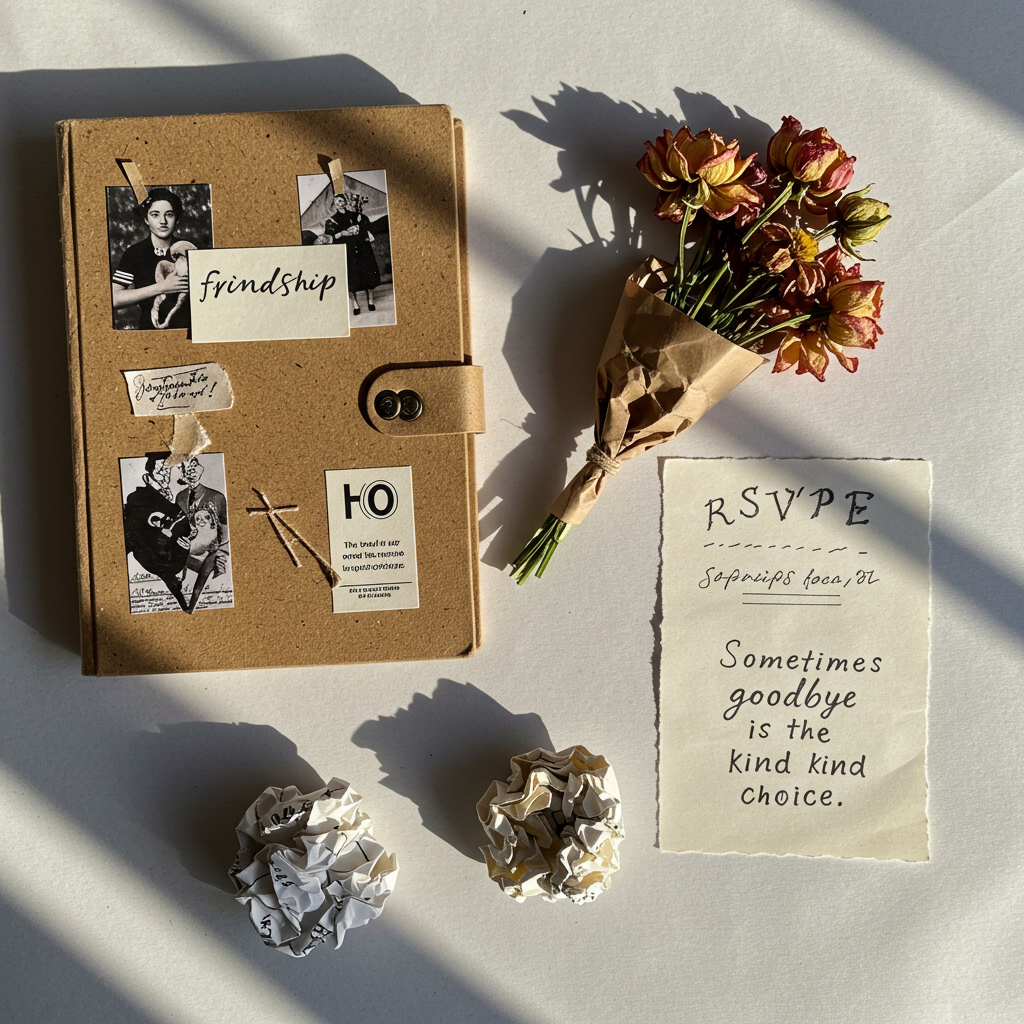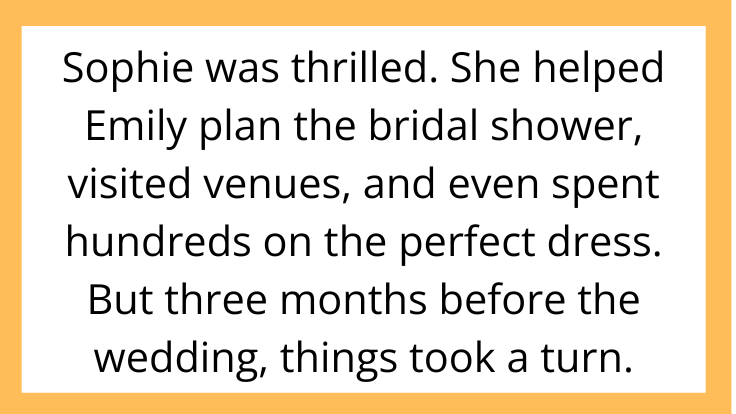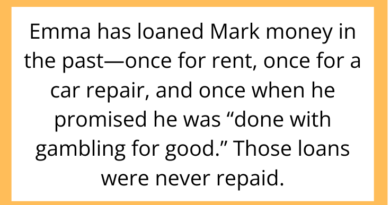AITAH for Canceling My Best Friend’s Wedding RSVP Because She Demoted Me from Maid of Honor to a Regular Guest?
When lifelong friendships collide with wedding politics, the fallout can be explosive. Today’s AITAH scenario unpacks a painful decision: walking away from a close friend’s big day after feeling publicly humiliated.
Let’s dive into the story.
The Backstory: A Role Reversed

Sophie, 27, posted on r/AITAH about her former best friend, Emily, 28. They’d been inseparable since middle school—sleepovers, shared secrets, and every major milestone together. Naturally, when Emily got engaged, she asked Sophie to be her maid of honor.
Sophie was thrilled. She helped Emily plan the bridal shower, visited venues, and even spent hundreds on the perfect dress. But three months before the wedding, things took a turn.
Emily called Sophie to say she’d decided to make her cousin the maid of honor instead. Her reason? She felt “closer” to her cousin lately and worried Sophie was too stressed with work to “give the role the attention it deserved.”
Sophie was stunned. She offered to stay in the wedding party as a bridesmaid, but Emily insisted she’d rather Sophie just attend as a guest. Feeling hurt and humiliated, Sophie declined to come at all.
When mutual friends heard Sophie canceled her RSVP, they accused her of being selfish and unsupportive.
The Emotional Fallout: Humiliation and Hurt

The Case for Sophie: A Broken Bond
Many in the AITAH community immediately empathized with Sophie’s pain. Being demoted from maid of honor to a guest wasn’t just a logistical change—it was a public declaration that her role in Emily’s life had diminished.
Sophie had invested time, money, and emotional energy into supporting Emily. To be dismissed so casually felt like a betrayal of their shared history.
One Reddit commenter put it bluntly: “She didn’t just demote you—she demoted your friendship.”
The Case for Emily: A Bride’s Prerogative
On the other hand, some argued that brides have the right to make whatever decisions feel right for their big day, even if those choices hurt feelings. Emily may have genuinely believed Sophie was overwhelmed and didn’t want to add more stress.
From her perspective, shifting the maid of honor role wasn’t personal—it was practical. She still wanted Sophie at the wedding to celebrate, just not in a high-pressure role.
Boundaries and Self-Respect: Where Should We Draw the Line?

This story hits on an uncomfortable truth: sometimes, friendships drift apart even if no one wants to admit it. When that happens, events like weddings become the stage where those unspoken tensions finally play out.
Sophie’s choice to skip the wedding wasn’t just about the title. It was about preserving her self-respect after feeling devalued.
What Reddit Said: Who’s the Villain?

The AITAH community largely agreed Sophie wasn’t the villain. Top comments validated her decision to bow out:
-
“You don’t owe anyone attendance at an event where you were publicly embarrassed.”
-
“Being a guest after all you did would feel like salt in the wound.”
Still, a few voices argued that canceling the RSVP entirely was a step too far, suggesting a compromise: attending quietly to honor the friendship, but setting boundaries afterward.
Lessons from This AITAH Situation

1. Titles Matter—Because They Reflect How We Value Each Other
Being asked to be maid of honor is more than ceremonial. It’s a sign of trust and closeness. Reversing that choice stings because it signals a shift in how you’re seen.
2. It’s Okay to Say No to Protect Your Peace
You are allowed to step back when a relationship no longer feels reciprocal or respectful. Weddings are emotional minefields, and showing up out of obligation isn’t always the right choice.
3. Communication Could Have Changed Everything
If Emily had shared her concerns sooner, they might have found a compromise that honored their bond. Clear, compassionate communication can prevent heartbreak later.



